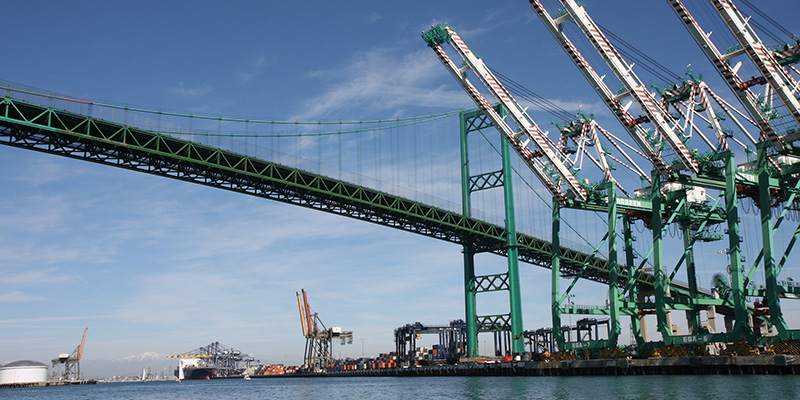
(Photo: tobbo/Pixabay)
Editor’s Note: The Los Angeles County Economic Development Corporation (LAEDC) is a member of the California Stewardship Network. CA Fwd is featuring regional voices from the Network to highlight issues important to members.
On March 4 the City and County of Los Angeles, along with the State of California, declared a local public health emergency in an effort to access state and federal funding to strengthen local efforts to prevent the spread of the Coronavirus Disease 2019 (COVID-19) and protect public health. Our government leaders and public health agencies are doing their part but have challenged those of us in the private sector to do our part as well to protect public health given the evolving and likely continued spread of the virus across our communities.
The Los Angeles County Economic Development Corporation and the World Trade Center Los Angeles are engaged in conversations with many domestic and international employers in the region who are already feeling the effects of the spread of COVID-19 on their businesses as we seek to better understand and help them mitigate the impact on their enterprises.
Los Angeles is a world city, especially reliant on international trade and tourism. The ports of Los Angeles and Long Beach import nearly 40% of all the waterborne containerized cargo entering the nation each year and LAX is the number one origin and destination airport in the world, playing a pivotal role in bringing us a record 50 million visitors this past year.
Trade and tourism each employ hundreds of thousands of people in our regional economy and activity is declining rapidly in both sectors due to the shutdown of factories in China and the restrictions on travel from China, South Korea, Italy and other leading sources of visitors to our region.
Other leading employment sectors in our region are also being impacted such as manufacturing which slows when component parts in its supply chain are unable to get here for final assembly or the retail sector which suffers when the products it needs to stock its shelves are also delayed in arrival.
It is therefore important for business owners and the trade associations, chambers of commerce and economic development organizations which support them to take steps to both protect the health of their employees and their enterprises themselves.
The Centers for Disease Control and Prevention (CDC) have released “Interim Guidance for Businesses and Employers to Plan and Respond to COVID-19”. The guidance is designed to help prevent workplace exposures in non-healthcare settings, prevent stigma and discrimination in the workplace, and to help ensure continuity of operations for businesses in our communities. Specific suggestions include: employers actively encouraging sick employees to stay home in order to protect their fellow employees and other members of the public they might otherwise come in contact with during their illness; emphasizing appropriate respiratory etiquette and good hand hygiene by all employees; establishing policies and practices to increase the physical distance among employees and between employees and members of the public if public health officials call for social distancing to reduce the spread of the virus; performing frequent environmental cleaning of the workplace; and restricting travel to areas with known outbreaks.
In addition the LAEDC has abstracted from our own business continuity and resilience guide (originally developed to help businesses prepare for and respond to major earthquakes or wildfires in the area) a series of recommendations to help businesses continue to operate should any of their employees become ill, or their supply chains become disrupted, or their working capital become threatened by a reduction in consumer demand or a delay in their ability to fulfill product or service orders due to supply chain disruptions.
Recommended action steps include: utilizing cloud-based email, voicemail, document sharing and other IT systems and apps to allow work from remote locations including employees telecommuting from home; Cross training staff on essential functions to ensure business continuity while any key employees may be unavailable; using video conferencing software or phone bridges to do virtual meetings rather than in-person group meetings or travel to meetings or conferences; diversifying supply chains to become less dependent on individual suppliers from territories that may be at greater risk of impacts from COVID-19; and securing capital to protect the business from reduction in revenues due to supply chain disruptions or reductions in consumer demand.
Numerous other strategies and supports are available for affected employers through the business assistance team at the LAEDC and World Trade Center Los Angeles.
The LAEDC and WTCLA believe that well developed and executed plans for protecting employees, members of the public and the enterprises which employ us all can go a long way to helping reduce the fear of the virus as well as the spread of the virus itself.
Bill Allen is the CEO of LAEDC and Stephen Cheung is President of World Trade Center LA.

